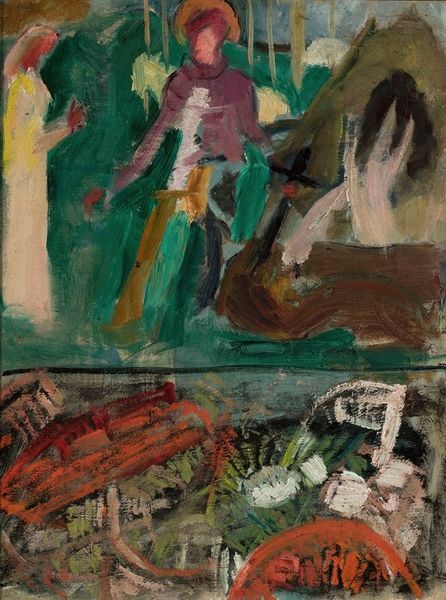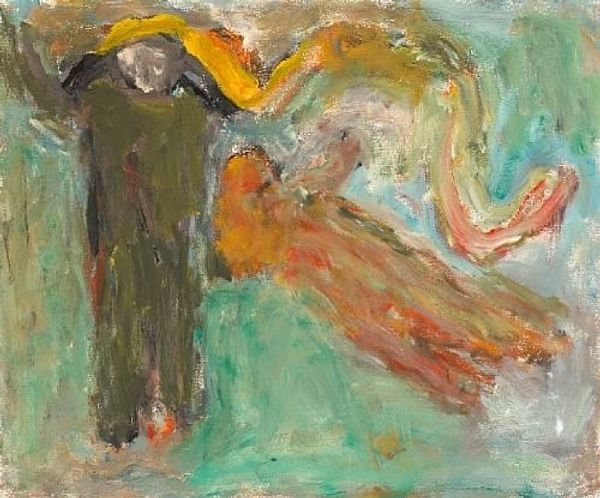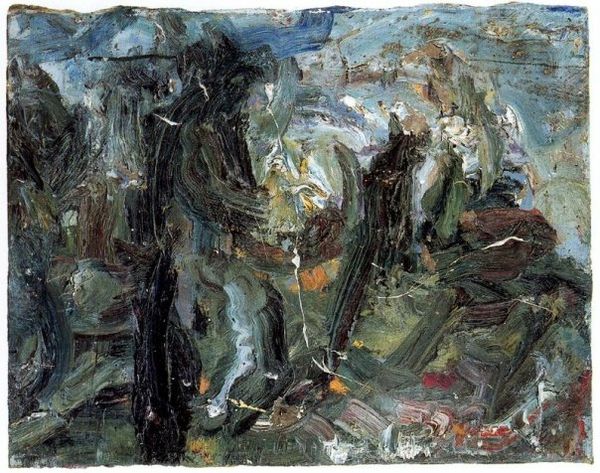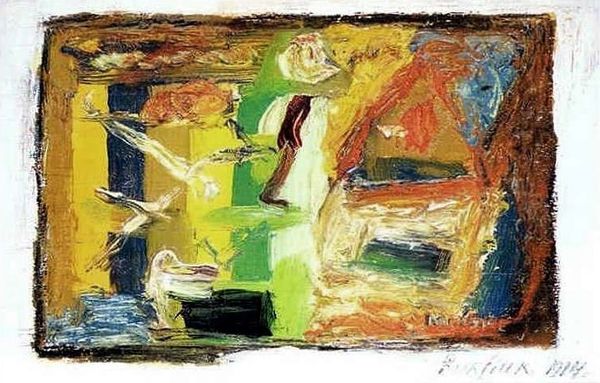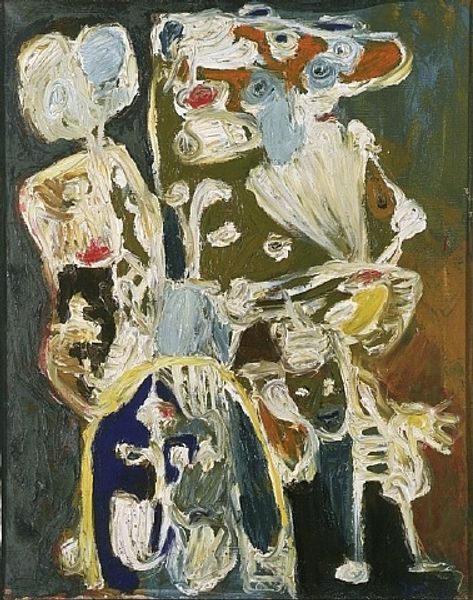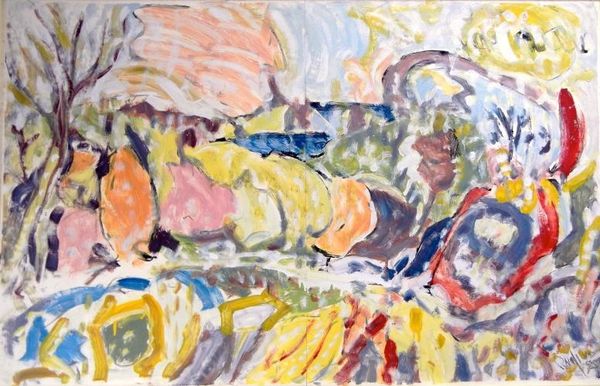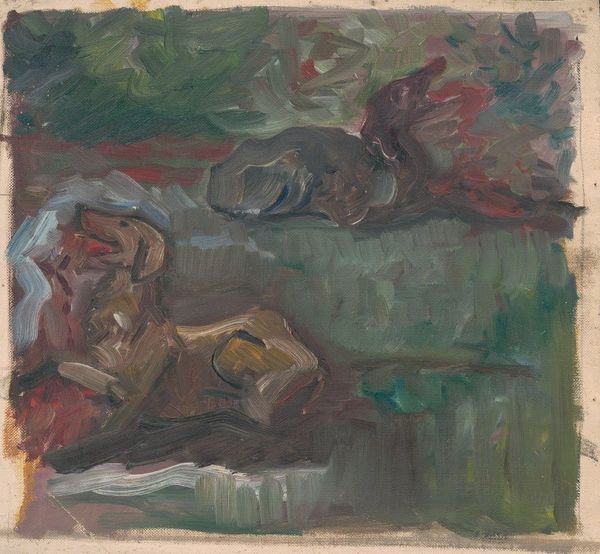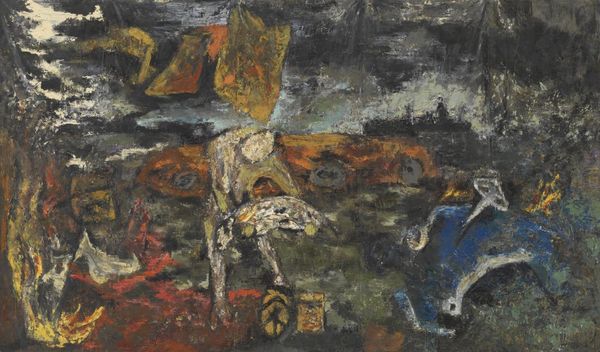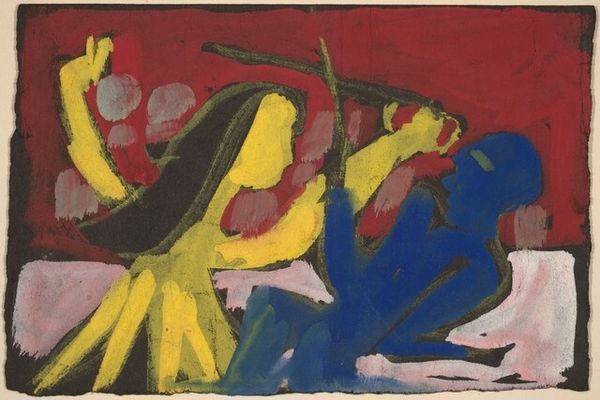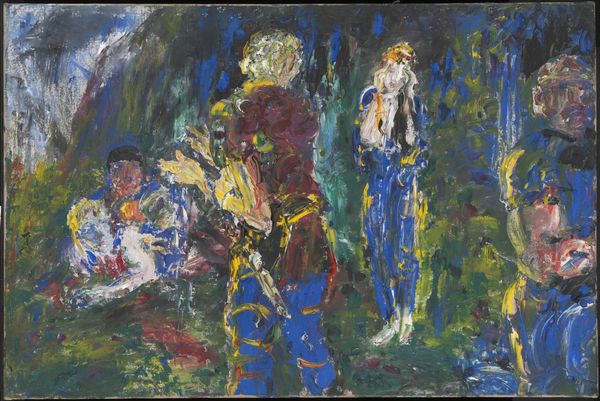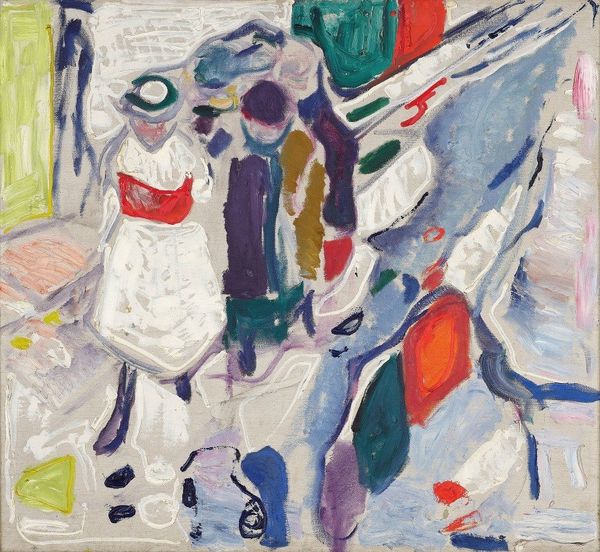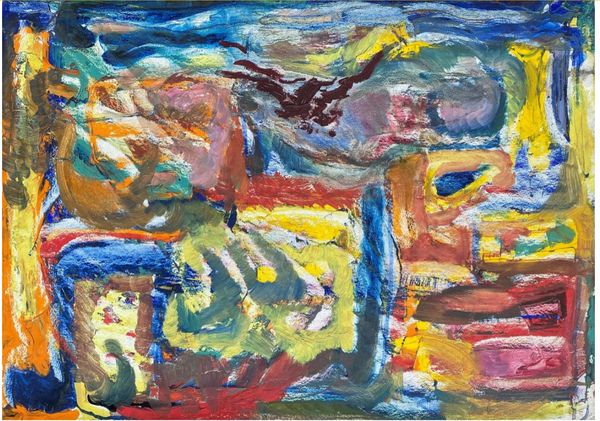
oil-paint, impasto
#
abstract-expressionism
#
abstract expressionism
#
oil-paint
#
landscape
#
form
#
oil painting
#
impasto
#
abstraction
Copyright: Milton Resnick,Fair Use
Curator: Standing before us is Milton Resnick's "Painting I," completed in 1957. An impressive example of Abstract Expressionism executed in oil paint. Editor: My initial feeling is a kind of raw, elemental chaos. The colors, though varied, feel turbulent, and the impasto is so thick. I want to touch it. Curator: The sheer physicality is a defining feature of Resnick’s work during this period. Abstract Expressionism, of course, arose in a very specific historical and cultural climate post World War II. The emphasis was on subjective experience and the process of creation itself. Editor: Yes, the subjectivity feels palpable, like peering into the artist's psyche. And beyond the immediate impact of color, there’s a deeper social context too. Artists like Resnick, through total abstraction, were wrestling with ideas of personal and collective trauma and trying to articulate an existential freedom through painting. Curator: Precisely. The canvas becomes an arena in which he, and many of his peers, perform these internal struggles for meaning and resolution, but crucially, without relying on traditional representational forms that, for them, were increasingly insufficient. Editor: Looking closer, it's as though forms are trying to emerge— hints of landscapes, maybe even figures wrestling with the abstraction. This gives me the impression of something unresolved or evolving. How do you think this style engaged with audiences back then? Curator: Well, initially Abstract Expressionism wasn’t always popular with the broader public. Its rejection of conventional subject matter often led to bewilderment or hostility, dismissed sometimes as unskilled or meaningless. The critical establishment and, eventually, institutions helped build a framework of understanding and appreciation. Editor: I see it as a visual embodiment of cultural and personal unrest. Abstract Expressionism continues to be culturally relevant today for similar reasons, namely the ongoing challenges around societal structures, personal agency and identity. The politics of abstraction become ever present! Curator: I would argue that this legacy also serves as an essential chapter within the unfolding narrative of artistic and societal progression, as Resnick’s work epitomizes the evolving conversation surrounding modern art's function and intention. Editor: Absolutely. Examining his process reminds us to engage with art and life’s ongoing social dialogues. Curator: Indeed. Thank you for your perspectives.
Comments
No comments
Be the first to comment and join the conversation on the ultimate creative platform.
